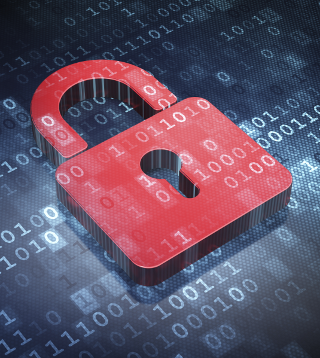Internet Anonymity, Security and Censorship
Internet and Anonymity
Nowadays, the issue of the anonymity on the Internet becomes more and more pressing. In accordance with the requirements of legislation of many countries, each Internet service provider must keep the data on users’ IP addresses, date and time of checking out one or another Internet resource for a certain period and provide intelligence agencies with them on demand.
A large amount of such data is collected by large websites and social networks that users browse. Subsequently, this information is used for marketing purposes and, as is known thanks to Edward Snowden, is a subject of the utmost examination of intelligence agencies.
And even if you have nothing to hide from law enforcement agencies downloading a new movie or music album from the favorite torrent tracker, you are at risk of being sued by a right holder for copyright infringement.
Internet and Security
The possibility to access the information at any time is that modern society aspires to. In modern megacities there are many free Wi-Fi access points situated in cafes and shopping centers, hotels, parks, squares and other public spaces.
However, many owners of smartphones, tablets and laptops using free Wi-Fi do not think about the security of their personal data. But they should, as any person, even an unskilled hacker, can intercept passwords to e-mail or profiles in social networks, access bank accounts or do other harsh things.
Users of desktop computers also cannot be confident that a curious system administrator in your office or an Internet service provider are not tracking your online activity analyzing which sites you see during working hours or at night.
Internet and Censorship
Despite the tendency to the development of society towards information transparency and accessibility, users of the Internet often experience the issue of Internet censorship.
In China, Iran and other countries of the Middle East censorship is generally applied to Internet resources that are undesirable for a political regime. For example, in China you will not be able to use Google, Twitter, YouTube and other usual online services.
Even if taking China and other countries having a rigorous political regime into account, the access to websites is often restricted in corporate networks: any company management is interested in that the workers work tirelessly with no Internet they use day and night.
In addition, administers of some resources restrict access to their websites for the territory of particular countries themselves. This is mostly connected with license restrictions or with marketing policy. For instance, popular video streaming service Hulu does not work outside the USA and Japan, or popular music service Spotify lets only 60 countries gain access to its content.
So, when you are on vacation or abroad on business, at any time you can face the issue of Internet censorship and impossibility to access Internet resources you need.
What to Do?
Nowadays, there are a range of techniques and methods that help Internet users provide privacy and security and gain access to blocked Internet resources.
The first way is to use free anonymizers and proxy servers, just like well-known anonymouse.org. However, in most cases, this way is good only for changing your own IP address when opening pages in a browser. It does not address the issue of exchanged data security, does not allow to use Skype, ICQ or other apps via the connection created by an anonymizer. By the way, payment for using free anonymizers is mainly watching annoying commercial.
The second way is to use specialized anonymous networks, for example, TOR or I2P. If you use them in a proper way, you are guaranteed to conceal your IP address, gain access to blocked resources and hide your online activity from a curious service provider. However, just like with anonymizers and proxy services, this way is good only for web surfing. Besides, the most unpleasant disadvantage of this method is that due to the specificities of anonymous networks’ composition, speed of the Internet will be very low if you surf via TOR, especially as compared with usual surfing via the megabit channel. Moreover, it will be almost impossible to download big files, watch videos or listen to music via such networks.
The third way is to use VPN technologies. Unlike two previous ways, this way does not have disadvantages mentioned above, lets hide your IP address, provide exchanged data security giving you access to Internet resources via public Wi-Fi access points or corporate networks at the same time and be safe to use Facebook, Skype, online messengers and other software.
How Does VPN Work?
The technology of Virtual Private Networks (VPN) allows to create logical networks above other networks, for instance, the Internet. Due to its flexibility, the VPN technology can be used for different purposes but, in many cases, it is used for combining several territorially separated local networks of one organization (for instance, for connecting subsidiaries to the central office) or for providing users with access to the Internet.
Now all data that are sent from the user’s device (personal computer, laptop, tablet or smartphone) are encrypted and transferred to the VPN server, via which eventually the user can connect to the Internet. In other words, the user’s device exchanges data with Internet resources via the VPN server, which allows to meet the following tasks:
- to change IP address: for Internet resources it looks like the VPN server having its own IP address that is different from the address given by your Internet service provider requests the data. It lets browse websites anonymously, and no one will know your real IP address and track your location
- to protect your data: all traffic between the user’s device and the VPN connection is coded with strong cryptographic algorithm. It allows to be safe to use free Wi-Fi access points and surf the Internet in the workplace, and neither system administrator nor hackers will be able to know which websites you browse, and your passwords to profiles will be secure
- to unlock access to Facebook, YouTube and other websites: you gain access to Internet resources via the VPN server bypassing different filters and lockouts that your Internet service provider or boss sets up in corporate networks. It lets bypass Internet censorship and lockouts based on the geographical location: it is enough to connect to the American VPN server, and you will be able to watch movies on hulu.com actually being in Europe.
One of the most interesting advantages of the VPN technology that separates it from other technologies is a possibility to use it on any software and hardware platform: all operating systems of Windows, Linux, macOS, iOS and Android support VPN, which allows to use VPN and be safe to surf the Internet using your personal computer, as well as mobile devices (tablets and smartphones).
Besides, VPN works on a level of the operating system kernel, which helps provide anonymity and protect yourself from intercepting the data from Skype, ICQ and any other programs.
Unlike anonymous networks, the composition of the VPN connection does not use intermediated nodes, which provides high data transfer speed and lets surf the Internet comfortably.
You can learn more about advantages of VPN technologies used for anonymous and safe online activity by watching this short video - youtu.be/iXA-U8HC3dg



